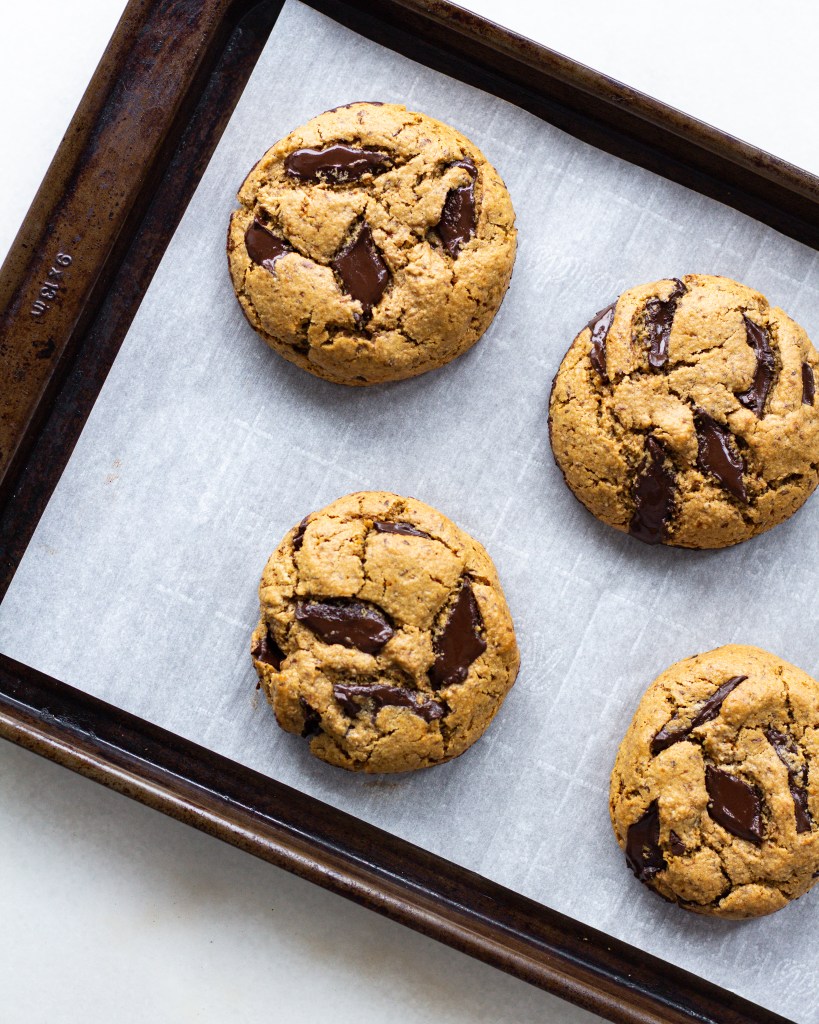Olive oil is both vegan and gluten-free, making it suitable for those following these dietary restrictions. It is a plant-based product derived from pressing whole olives, free from animal products and gluten-containing grains.
Olive oil is a staple in kitchens worldwide, valued for its versatility and health benefits. It’s a heart-healthy fat rich in monounsaturated fats, known to support cardiovascular health. Chefs and home cooks alike cherish olive oil for its ability to enhance the flavors of food without overpowering them.
Its high smoke point makes it ideal for cooking, while its rich taste is perfect for dressings and dips. For anyone with dietary concerns or simply seeking a nutritious oil option, olive oil is a go-to choice that fits seamlessly into a variety of recipes and eating plans.
Introduction To Olive Oil
Olive oil is a staple in many kitchens around the globe. It is prized for its flavor, health benefits, and versatility. But is it vegan and gluten-free? The answer is a resounding yes. Olive oil comes from olives, the fruit of the olive tree, making it a plant-based product. As it does not contain any animal by-products, it is vegan. Additionally, since it does not include any wheat, barley, or rye, it is also gluten-free. This makes it a safe choice for those with gluten sensitivities or celiac disease.
Origins And Production
The journey of olive oil begins in the sun-kissed groves of the Mediterranean. Here, olive trees have thrived for thousands of years. The production process is simple yet precise. It involves harvesting olives, crushing them into a paste, and then extracting the oil. This process retains the natural flavors and health benefits of the olives.
Common Uses In Cooking
In the kitchen, olive oil is a true hero. Its uses are many and varied. Chefs drizzle it over salads for an instant flavor boost. They also use it to sauté vegetables, bringing out their natural sweetness. Baking with olive oil can add a moist texture to cakes and bread. It’s a healthier alternative to butter and other fats.
Defining Veganism
When exploring the world of healthy eating, olive oil often comes up as a staple ingredient. But is it suitable for everyone? Let’s dive into the topic of veganism to understand better whether olive oil fits into this lifestyle.
Core Principles
What does being vegan mean? At its heart, veganism is about avoiding all forms of animal exploitation and cruelty. This includes not only food but also clothing, entertainment, or any other purpose.
- No animal products: Vegans don’t consume meat, dairy, eggs, or honey.
- Plant-based choices: Diets focus on fruits, vegetables, legumes, grains, nuts, and seeds.
- Animal rights: Vegans advocate for the ethical treatment of animals.
Common Misconceptions
Veganism is often misunderstood. Some people think vegan diets are automatically healthy. This isn’t always true. Vegan diets require careful planning to be nutritious.
| Misconception | Truth |
|---|---|
| Vegans only eat salads | Vegans enjoy a diverse range of foods |
| Vegan food is always healthy | Like any diet, vegan food can be unhealthy if not balanced |
| Veganism is expensive | It can be affordable with the right choices |
The Vegan Status Of Olive Oil
Olive oil is a staple in many kitchens around the world. Its popularity among various diets, including veganism, stems from its natural origin and health benefits. Understanding the vegan status of olive oil requires a look at its extraction process and whether any animal products are involved.
Extraction Process
Olive oil comes from pressing whole olives. This process is mechanical and does not use chemicals. Modern methods ensure purity and quality. The oil is simply extracted, settled, and bottled. No animal derivatives are present, making olive oil plant-based and vegan.
Animal Product Involvement
No animals are harmed or used in the production of olive oil. The industry standard is to maintain a cruelty-free approach. This aspect is crucial for vegans who avoid all forms of animal exploitation. Olive oil passes this test with flying colors.
- Olive oil is 100% animal-free.
- It is considered a vegan-friendly product.
In conclusion, olive oil’s vegan status is clear. It is a safe choice for those following a vegan lifestyle, free from gluten and animal involvement.

Credit: www.amazon.com
Understanding Gluten
Let’s dive into the basics of gluten. Understanding what gluten is and where it’s found is crucial for various dietary needs.
What Is Gluten?
Gluten is a protein. It’s in wheat, barley, and rye. This protein helps foods keep their shape, acting like a glue.
Sources Of Gluten In Foods
Gluten appears in many foods, often hidden. Here’s a quick look:
- Breads and pastries
- Pasta from wheat
- Cereals, unless labeled gluten-free
- Snacks like pretzels, cookies, and crackers
- Some sauces and gravies
- Beer and other malt beverages
Always check labels for gluten content.
Olive Oil’s Gluten Content
When it comes to dietary restrictions, knowing what’s in your food is key. Olive oil is a popular ingredient in many kitchens, valued for its flavor and health benefits. But is it safe for those with gluten sensitivities? Let’s explore the gluten content in olive oil.
Assessing For Gluten
Olive oil, by nature, is a pure extraction from olives. This means it naturally contains no gluten, proteins found in wheat, barley, rye, and other grains. Those following a gluten-free diet can use olive oil without worry. It’s a fat source free from gluten, making it safe for celiacs and others avoiding gluten.
Cross-contamination Concerns
While olive oil itself is gluten-free, cross-contamination can happen. This occurs when gluten-free products come into contact with gluten-containing substances. It’s important to buy olive oil from reputable sources. Look for certifications on the label. This ensures the oil is free from gluten cross-contamination. Always check the packaging for gluten-free claims to be certain.
Cross-contamination can occur during:
- Harvesting
- Processing
- Packaging
- Storage
For those with severe allergies or celiac disease, even a small amount of gluten can cause issues. Choose oils that are certified gluten-free for peace of mind. This ensures the oil was handled in a gluten-free environment.

Credit: bojongourmet.com
Health Benefits Of Olive Oil
Exploring the health benefits of olive oil reveals why this natural product is a staple in kitchens worldwide. Olive oil is not only vegan and gluten-free but also packed with nutrients beneficial for overall health.
Nutritional Profile
Olive oil is rich in monounsaturated fats, particularly oleic acid. These fats are essential for heart health. The oil also contains vitamins E and K, which are vital for skin and bone health. Here’s a quick glance at what a tablespoon of olive oil offers:
| Nutrient | Amount |
|---|---|
| Calories | 120 |
| Total Fat | 14g |
| Saturated Fat | 2g |
| Monounsaturated Fat | 10g |
| Polyunsaturated Fat | 1.5g |
| Vitamin E | 1.9mg |
| Vitamin K | 8.1µg |
Olive oil does not contain carbs, protein, or fiber. This makes it ideal for low-carb and gluten-free diets.
Impact On Well-being
Regular consumption of olive oil can lead to improved heart health. It helps reduce bad cholesterol levels and increase good cholesterol. This balance is crucial for preventing heart disease.
- It supports weight management efforts.
- Olive oil has anti-inflammatory properties. These can help combat diseases like arthritis.
- The antioxidants in olive oil protect cells from damage. This is important for anti-aging benefits.
- Using olive oil may lower the risk of type 2 diabetes.
- It also plays a role in protecting against stroke.
Overall, olive oil is a powerful addition to a healthy diet. Its benefits touch various aspects of well-being, from heart to bone health. Embracing olive oil is a simple yet effective step towards better health.
Choosing The Right Olive Oil
Choosing the right olive oil is key to enjoying its full benefits. Whether you’re vegan, gluten-free, or just health-conscious, the type of olive oil you select can impact flavor and nutrition.
Types Of Olive Oil
Understanding the different types of olive oil helps make a better choice:
- Extra Virgin Olive Oil: Best quality, made by cold pressing olives.
- Virgin Olive Oil: Similar to extra virgin but with a slightly higher acidity.
- Refined Olive Oil: Chemically treated, lacks strong flavors.
- Pure Olive Oil: A blend of refined and virgin olive oils.
Label Reading Tips
Reading labels is crucial to picking the best olive oil:
- Look for “cold-pressed” on the label. This term ensures no heat was used.
- Check the harvest date. Olive oil is best used within a year of harvest.
- Ensure the label says “extra virgin” for the highest quality.
- Avoid oils labeled as “light” or “for cooking” as these are often lower quality.
By focusing on these aspects, you can choose an olive oil that fits your dietary needs and enhances your cooking.

Credit: www.amazon.com
Recipes And Tips
Welcome to the flavorful world of olive oil, a staple in many kitchens for its versatility and health benefits. Olive oil is not only a heart-healthy fat but also a vegan and gluten-free option, perfect for diverse diets. In this section, we’ll explore creative ways to use olive oil in your vegan and gluten-free recipes, ensuring each dish is as delicious as it is nutritious.
Incorporating Into Vegan Diet
Olive oil is a plant-based product, making it an ideal choice for vegans. Its rich taste and high nutritional value add depth to vegan dishes. Here are ways to include olive oil in a vegan diet:
- Dressings: Whisk together olive oil with lemon juice and herbs for a quick salad dressing.
- Cooking: Use olive oil as a substitute for butter when sautéing vegetables.
- Baking: Replace animal fats with olive oil in vegan baking for moist cakes and cookies.
- Drizzling: Enhance soups and stews with a drizzle of olive oil before serving.
Gluten-free Recipe Ideas
Gluten-free cooking can be both easy and delicious with the addition of olive oil. Here are some gluten-free recipe ideas that showcase olive oil:
- Roasted Vegetables: Toss your favorite veggies in olive oil and roast until golden brown.
- Gluten-Free Pasta: Mix cooked gluten-free pasta with olive oil, garlic, and fresh herbs for a simple yet tasty meal.
- Homemade Pesto: Blend basil, pine nuts, garlic, and olive oil for a gluten-free sauce perfect for many dishes.
- Grilled Fish: Brush fish with olive oil before grilling for a heart-healthy main course.
Remember, the quality of olive oil matters. Choose extra-virgin olive oil for its superior flavor and antioxidant content. Enjoy experimenting with these vegan and gluten-free recipes using the rich taste of olive oil.
Frequently Asked Questions
Can Vegans Have Olive Oil?
Yes, vegans can consume olive oil as it’s a plant-based product derived from olives, fitting within a vegan diet.
Is There Gluten In Olive Oil?
Olive oil is naturally gluten-free, making it safe for those with gluten sensitivities or celiac disease.
Is Extra Virgin Olive Oil Gluten And Dairy Free?
Yes, extra virgin olive oil is naturally free from gluten and dairy. It’s a safe choice for those with related allergies or intolerances.
What Oil Is Vegan?
Vegan oils include olive, coconut, avocado, sunflower, and canola oils. These plant-based options are popular for cooking and baking.
Conclusion
To sum up, olive oil is both vegan and gluten-free, making it a superb choice for diverse diets. Its natural extraction process ensures it fits vegan standards, while its gluten absence caters to those with sensitivities. Embracing olive oil can enhance your culinary creations and support your dietary needs effectively.

